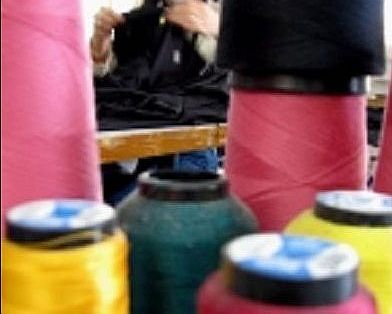
INQUIRER FILE PHOTO
Update
The Department of Finance wanted to recover P11.24-billion worth of tax credit certificates (TCCs) issued to unqualified—and some even non-existent—garments and textile manufacturers from 2008 to 2014.
Finance Secretary Carlos G. Dominguez III told a press conference on Friday that based on a Commission on Audit (COA) Special Audits Office (SAO) report issued on July 6, 3,288 questionable TCCs amounting were issued to 33 garments companies during the seven-year period, even as these firms were not registered with the Board of Investments (BOI), hence not entitled to fiscal and other perks given away to investors such as tax credits.
The BOI is an investment promotion agency tasked to grant incentives to enterprises that invest money and provide jobs.
In particular, 3,231 TCCs worth P8.85 billion were “overstated and supported by spurious documents,” Dominguez said.
Another P2.34-billion worth of TCCs “were granted to claimants whose fiscal incentives have already expired,” Dominguez added.
These TCCs had been issued by the DOF-attached One-Stop Shop Inter-Agency and Duty Drawback (OSS) Center.
Tax credits are refunds that exporters can claim as an incentive for the duties they pay for imported raw materials.
Instead of cash refunds, the government issues TCCs, which companies can use to settle tax obligations.
Finance Undersecretary Antonette C. Tionko said that the lapses may have stemmed from an OSS office order issued in 2004 or 2005 that allowed claiming of TCCs even without submitting actual proof of importation.
As such, Dominguez also on Friday issued Department Order No. 39-2018 that created a task force implementing the recommendations of the COA-SAO report, including the filing of claims as well as charges against erring individuals and firms.
“Expect [the DOF] to pursue the appropriate charges against the public officers and private persons who manipulated and unjustly benefited from the tax credit process with the OSS,” Dominguez said.
The OSS Center withheld issuance of TCCs to garments players since mid-2014, leading to a widely publicized attempt by some personnel to remove then officer-in-charge Sheila N. Castaloni from office.
But then finance secretary Cesar V. Purisima threw his support behind Castaloni, who initiated the investigation on the scam.
The garments sector had fallen from its glory days during the 1990s, as the removal of textile and clothing quotas by the World Trade Organization had reduced garments exports from the Philippines to $1 billion a year and workers to 200,000—about a third lower than when the sector was at its peak.
Also, Philippine garments exporters now compete with those from Bangladesh, China and Vietnam—where production cost is cheap—as well as with Central American countries and US territories where garments enjoy preferential tariffs.
To help the textile manufacturers, many of whom are in the red, the BOI had allowed them to sell TCCs to other BOI-registered businesses outside their industry.
For other industries that are faring well, the BOI allows the sale of TCCs only to other BOI-registered companies within the same sector.

